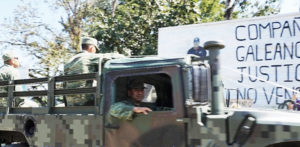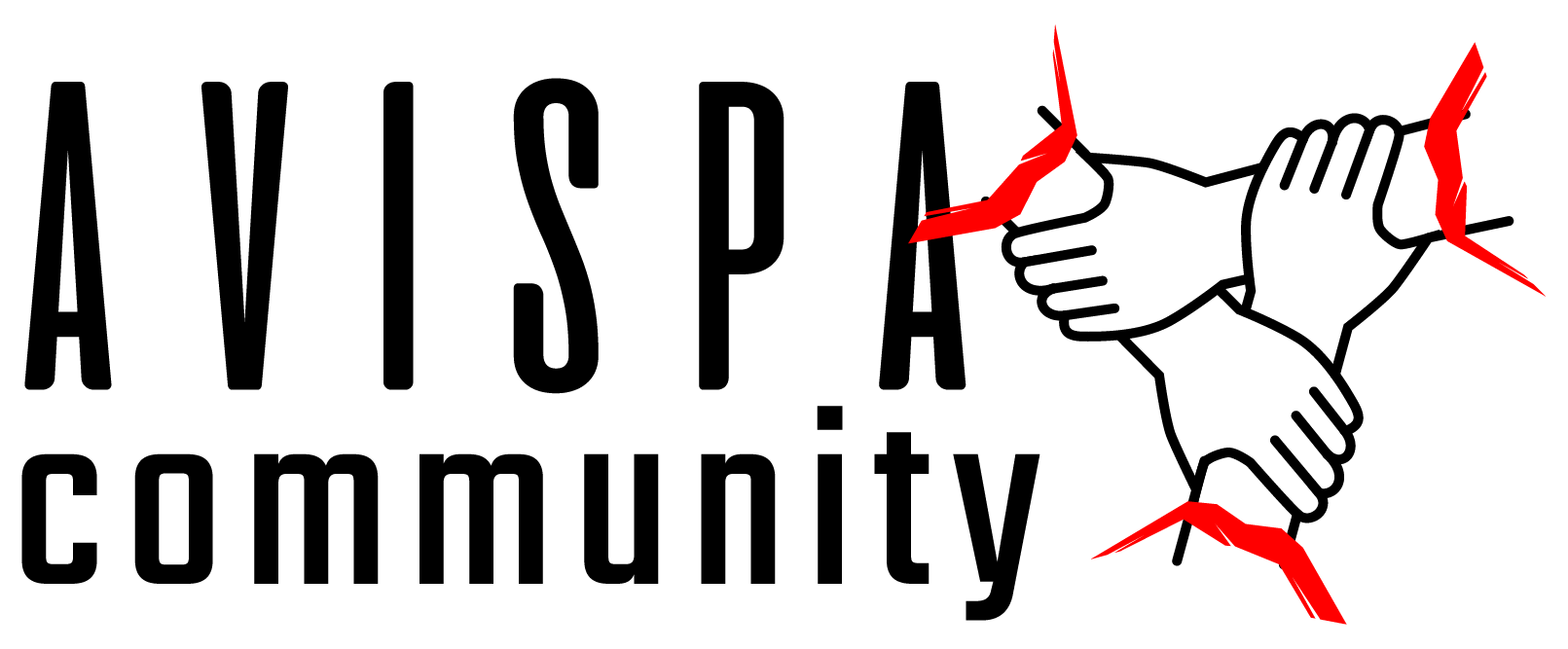The counterinsurgency strategy in regions populated by first peoples supporting the Zapatista National Liberation Army (EZLN) has intensified since President Andrés Manuel Lopez Obrador's (AMLO) administration took power in Mexico, according to human rights watch groups deployed in Chiapas.
In a report published on May 2, 2019, the Fray Bartolomé de las Casas Human Rights Center, (“Frayba") stressed that in April alone, army units conducted 14 incursions into the territory surrounding La Realidad Caraol in the Lacandón rainforest.
Among the operations that were spotted, observers saw military patrols with tanks. In January, just days after the EZLN released a strong critique of AMLO's government from La Realidad, soldiers entered the community four different times and conducted another four helicopter flyovers.
According to the watch groups' report, personnel from the Ministry of National Defense (Sedena, its Spanish acryonym), dressed as civilians, had entered La Realidad to ask about the EZLN's activities.
See also ⇒ Northern Guatemala: Indigenous peoples called terrorists for defending their rivers
The Denunciations Increase
On April 10, 2019, during the commemoration of the 100 year anniversary of Emiliano Zapata's assassination, the EZLN decried that, with the new government, "the military, police, and paramilitary presence has increased, as has that of spies, listening ears and informants. This, on top of the appearance of airplane and helicopter flyovers, "as well as armored vehicles, like in the times of Carlos Salinas de Gortari" [translator: Mexican president in office at the time of the Zapatista declaration of war.]
María de Jesús Patricio, spokeswoman of the Indigenous Government Council (Consejo Indígena de Gobierno), read the text, which was signed by Subcomandante Insurgente Moisés. "They show up in the communities saying that war is coming and that they're just waiting for orders from 'way up.' Some of them make themselves pass for what they're not and never will be, in order to learn the supposed 'military plans' of the EZLN. Perhaps ignoring the fact that the EZLN does what it says and says what it does... or perhaps because the plan is to set up a provocation and then blame the EZLN".
Thus they asserted that López Obrador is really just acting like his predecessors, "but now he changes the justification: today, the persecution, harassment, and attack on our communities is 'for the good of everyone' and it's done under the banner of the supposed 'Fourth Transformation". [Translator: The Fourth Transformation is AMLO’s term for supposed broad changes in Mexican politics under his leadership. The first three “transformations” were independence from Spain, the reform laws of Benito Juárez, and the Mexican Revolution].
This militarization that persists in Andrés Manuel López Obrador’s new federal government and Rutilio Escandón Cadenas’s new state government represents an assault on the lives of First Peoples' communities in Chiapas that defend their right to autonomy, self-determination, and territory.
It's worth recalling that on May 2, 2014, during the same action in which José Luis Solis López was extrajudicially executed, members of the Historic Independent Union of Agricultural Workers and Peasants (Central Independiente de Obreros Agrícolas y Campesinos-Histórica, a campesino organization and paramilitary group) destroyed the school and the autonomous clinic, also threatening to dismantle the Madre de los Caracoles del Mar de Nuestros Sueños (Mother of the Sea of Our Dreams Caracoles, another name for La Realidad Caracol). That action was a pretext for the Sedena to intensify militarization, which the Frayba pointed out was an act of intimidation, instead of looking for justice and for civil and peaceful means to resolve the conflict.
You may also be interested in ⇒ Mexican Indigenous Peoples Prepare to Resist Lopez Obrador’s Neoliberal Policies
One of the Causes: Mining and Megaprojects
This isn't the first time this year that the human rights group, based in San Cristóbal de las Casas, has denounced military actions against organizations against communities that defend their territories in Chiapas, in the south of Mexico.
During the Women’s Rights are also Human Rights land defenders’ encuentro, which took place March 23, 2019 in the community of Lázaro Cárdenas, in Chicomuselo municipality, they denounced espionage actions against the activists and human rights defenders present at the event.
"Members of the Mexican Army's 101st Infantry Battalion carried out acts of espionage during the encuentro. Victorino Morales Morales and Alejandro Yera Reyes, soldiers dressed as civilians, surveilled and photographed the activity, which was called for by the Women's Diocese Coordination (Coordinación Diocesana de Mujeres, CODIMU), of the San Pedro and San Pablo Parish... this constitutes a violation of the right to freedom of association, as well as a risk to the personal safety and security of those who defend human rights in Chicomuselo", the organization stated to local media.
In that region of the Chiapan Sierra Madre, people are organizing against mining activity by a Canadian company called Blackfire that extracts baryte, titanium, and magnetite in several regions of Chiapas.
The parish of San Pedro and San Pablo, located in the municipal capital, has questioned the investment in construction of a military base in the vicinity, which would give soldiers easy access to the municipalities of Frontera Comalapa, Chicomuselo and La Concordia. "The huge investment of public funds in the construction and maintenance of a base raises questions for us, in a time where there are no resources to give Mexicans access to basic necessities like health, education, and water", declared the campesinos who oppose the project. The project is currently suspended.
There are at least 99 mining concessions in Chiapas, spanning 15% of the state's territory. Some of them are found in buffer zones for important protected natural areas like the El Triunfo and Encrucijada reserves in the Soconusco region.
Hydrocarbon extraction projects and the installation of geothermic power plants remain active in the Zoque region in the north of the state, as do mini-hydroelectric plants and wind farms in the coastal-isthmus region.



